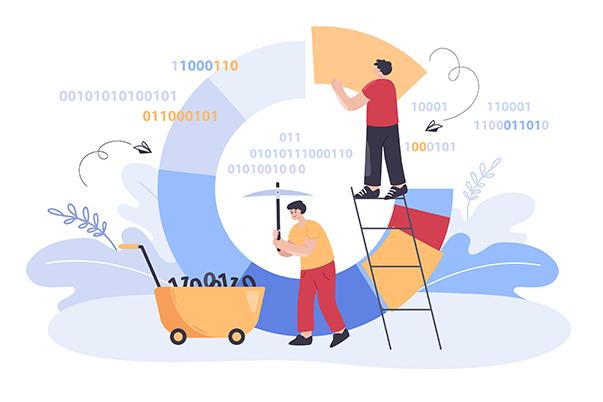
Using Data Refineries to Drive Social Impact
Posted on 03 July, 2023 at 12:11
Data is a valuable resource for any
organization, but especially for non-governmental organizations (NGOs) that aim
to create positive social impact in their communities. However, data alone is
not enough to achieve this goal. Data needs to be refined, analyzed, and
communicated effectively to inform decision-making, improve performance, and
demonstrate impact. This is where data refineries come in.
A data refinery is a process or system that
transforms raw data into actionable insights. It involves collecting, cleaning,
integrating, and enriching data from various sources, applying advanced
analytics and artificial intelligence techniques, and presenting the results in
a user-friendly and interactive way. A data refinery can help NGOs to:
- Understand the needs and preferences of
their beneficiaries and stakeholders
- Design and implement more effective and
efficient programs and services
- Monitor and evaluate their progress and
outcomes
- Communicate their impact and value to
donors, partners, and the public
- Learn from their successes and failures
and adapt accordingly
In Zimbabwe, where NGOs play a vital role
in addressing various social, economic, and environmental challenges, data
refineries can be a powerful tool to enhance their impact and sustainability.
However, there are also some barriers and challenges that need to be overcome,
such as:
- Limited access to reliable and relevant
data sources
- Lack of data literacy and skills among
staff and volunteers
- High costs and complexity of data infrastructure
and tools
- Low awareness and demand for data-driven
solutions among beneficiaries and stakeholders
- Ethical and legal issues related to data
privacy and security
To overcome these barriers and challenges,
NGOs in Zimbabwe need to adopt a data-driven culture that values and invests in
data as a strategic asset. They also need to collaborate with other actors in
the data ecosystem, such as government agencies, academic institutions, private
sector companies, and other NGOs, to share data, resources, and best practices.
Finally, they need to leverage the potential of cloud-based platforms and
open-source tools that can lower the costs and complexity of building and
maintaining data refineries.
By using data refineries to drive social
impact, NGOs in Zimbabwe can not only improve their own performance and
accountability, but also contribute to the national development goals and the
global sustainable development agenda. Data refineries can help NGOs to make a
difference in the lives of millions of people who depend on their work.
